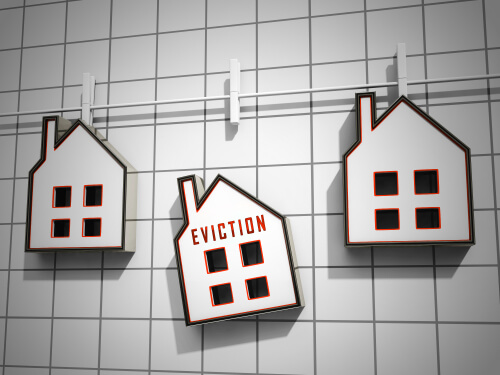As the coronavirus pandemic drags on across the country, initial orders issued by New York and other states inch closer to expiration – including moratoriums on evictions of tenants unable to pay their rent. To alleviate concerns of renters and lessees in New York, Governor Andrew Cuomo recently announced he was extending his March 20 eviction moratorium order through August. However, the extension may not change what might happen to some delinquent tenants past the order’s original June 20th expiration date.
Who Qualifies?
The extended eviction moratorium announced by the Governor applies only to New York tenants who are “eligible for unemployment insurance or benefits under state or federal law or otherwise facing financial hardship due to the COVID-19 pandemic.” The original moratorium granted protection to all commercial and residential tenants. However, a “financial hardship” is not specifically defined and no parameters have been set as to who qualify for this protection as of now.
Undocumented Immigrant Status
Some people worry that the new standard for extended protection may negatively impact individuals with undocumented immigration status. There is a question of whether a tenant who is brought to court will willingly demonstrate whether they were impacted and reveal their immigration status to help their credibility with the court – especially knowing that some landlords in New York City recently have called Immigration and Customs Enforcement (ICE) upon finding out their status and their inability to pay rent or abide by the terms of their existing lease.
Tenants Who Do Not Qualify
For other tenants, they are not protected from a landlord’s initiation of a holdover proceeding. This is an action filed with the court by a landlord who wants to evict you and is demanding possession of the apartment. This follows either a notice to terminate or notice to cure, not necessarily for failure to pay rent. Even though there may be a holdover proceeding, the only one who has the power to order you to move is the court. However, until housing courts are able to reopen landlords are still not able to commence a new eviction proceeding.
New York Real Estate Attorney
Though many people will qualify for extra protections from eviction during the pandemic, some will not and may need additional help. Many tenants may not be sure if the extension applies to them, as many parts of the new order are unclear, and some terms are not explicitly defined. If you have questions about how or if the eviction ban extension applies to you, or if you need help dealing with a problematic landlord, the experienced New York real estate attorneys at MOWK Law can help. We are here to help evaluate the situation, fight for your rights, and work towards the best resolution possible. Contact us today with your questions.

